Figure below shows two paths that may be taken by a gas to go from a state A to a state C. In process AB, 400 J of heat is added to the system and in process BC, 100 J of heat is added to the system. The heat absorbed by the system in the process AC will be
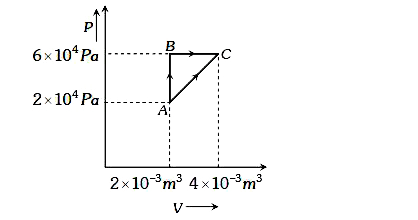
500 J
460 J
300 J
380 J
The correct Answer is:B
Step by step video, text & image solution for Figure below shows two paths that may be taken by a gas to go from a state A to a state C. In process AB, 400 J of heat is added to the system and in process BC, 100 J of heat is added to the system. The heat absorbed by the system in the process AC will be by Physics experts to help you in doubts & scoring excellent marks in Class 12 exams.
Updated on:21/07/2023Topper's Solved these Questions
Similar Questions
A thermodynamic process is shown in the following figure. The process and volumes corresponding to some points in the figure are:
PA=3×104Pa,
VA=2×10−3m−3,
PB=8×104Pa,VD=5×10−3m3
In process AB,600J of heat is added to the system and in the process BC,200J of heat is added to the system. the change in internla energy of the system in the process AC would be
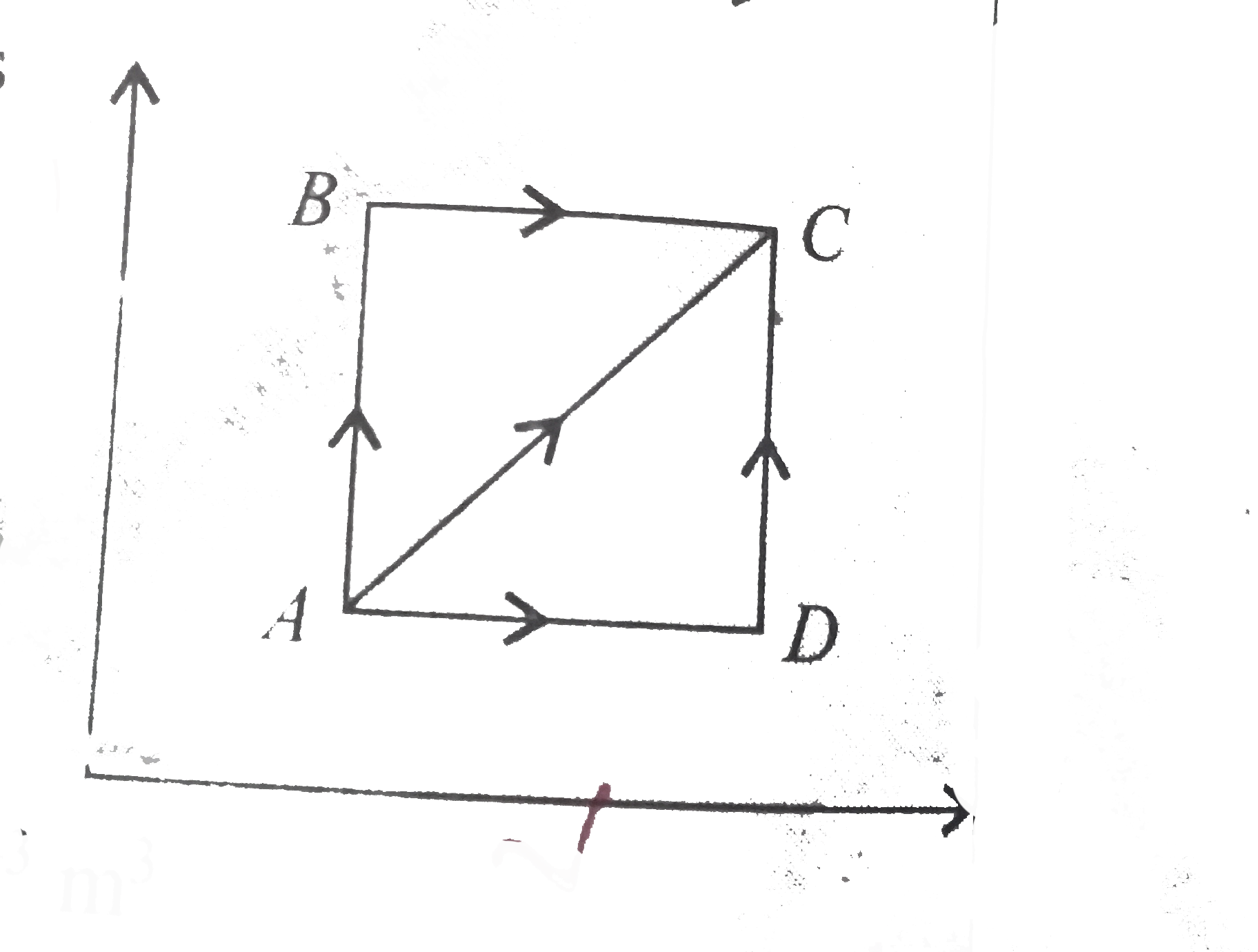
View SolutionA thermodynamic process is shown in Fig. The pressures and volumes corresponding to some points in the figure are : PA=3×104Pa,PB=8×104Pa and VA=2×10−3m3,VD=5×10−3m.
In process AB,600J of heat is added to the system and in process BC,200J of heat is added to the system. The change in internal energy of the energy of the process AC would be.
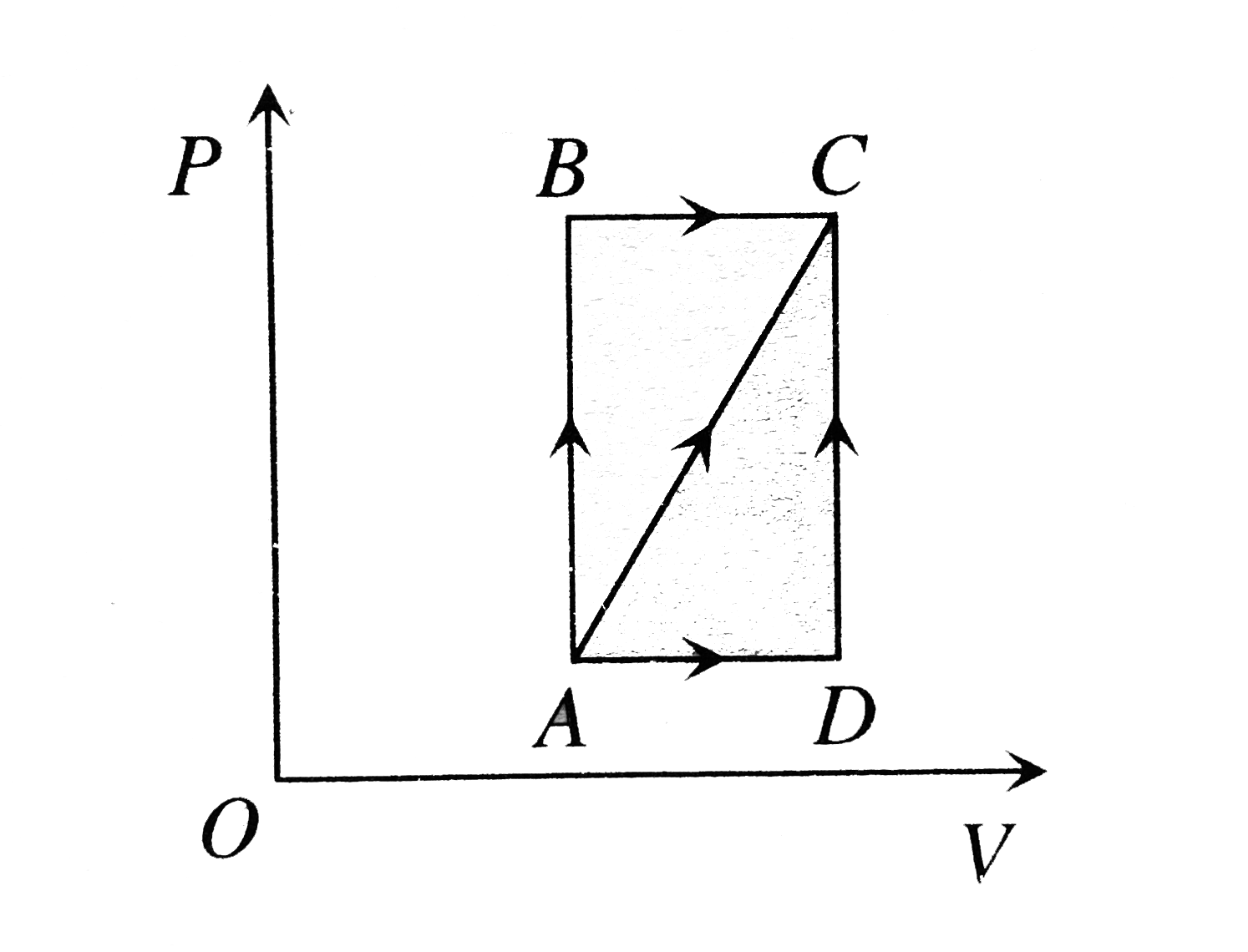
View Solution
Knowledge Check
Figure below shows two paths that may be taken by a gas to go from state A to a state C. In process AB, 400 Jof heat is added to the system and in proces BC, 100 J of heat is added to the system. The heat absorbed by the system in the process AC will be
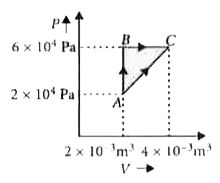 A460 JB300 JC380 JD500 J
A460 JB300 JC380 JD500 JIn (figure). shows two path that may be taken by a gas to go from a state A to state C
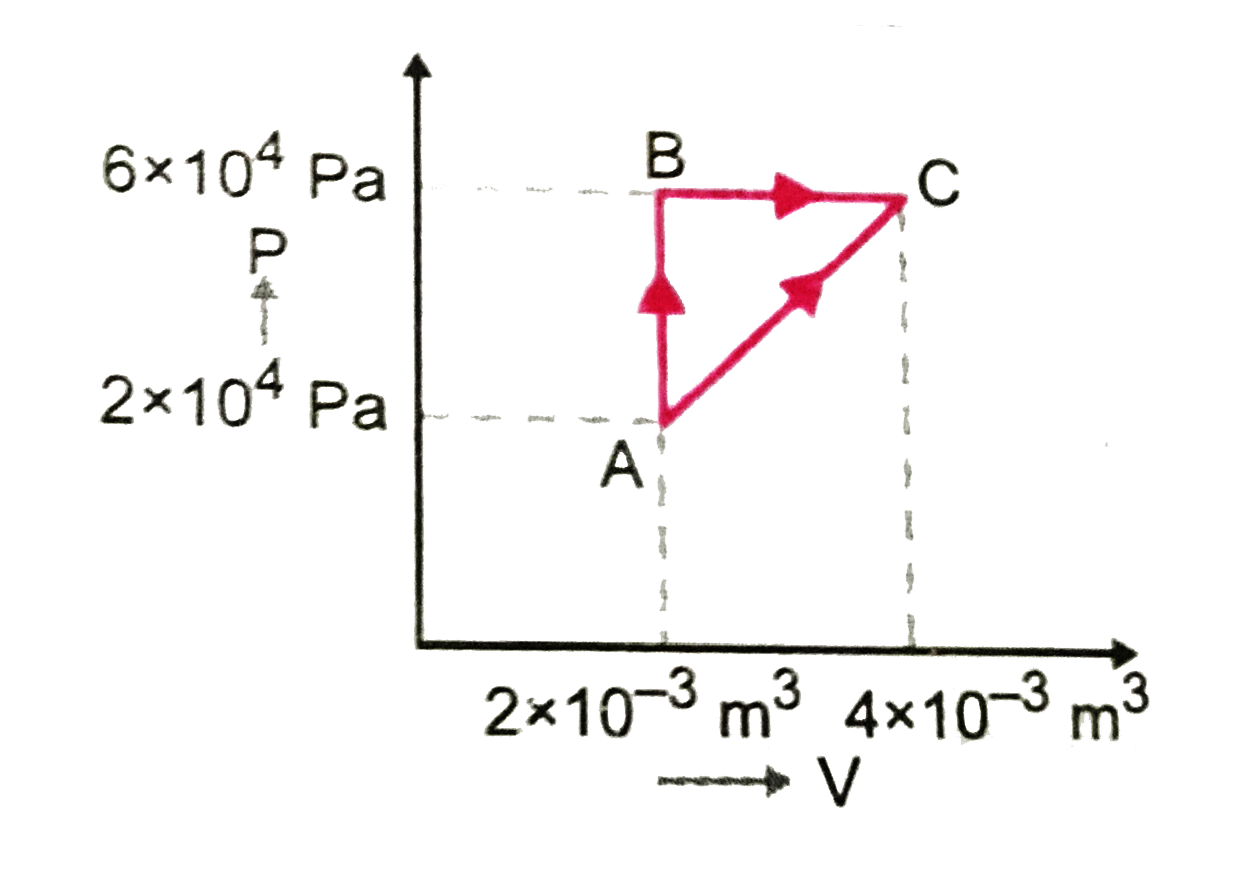
In the process AB, 400J of heat is added to the system and in process Bc, 100J of heat is added to the system. The heat absorbed by the system in the process AC will beA500JB460JC300JD380JWhat would be the heat absorbed by the system in the cyclic process?
A−2PVBzeroC2PVDPV
Calculate the heat absorbed by the system is going through the process shown in figure
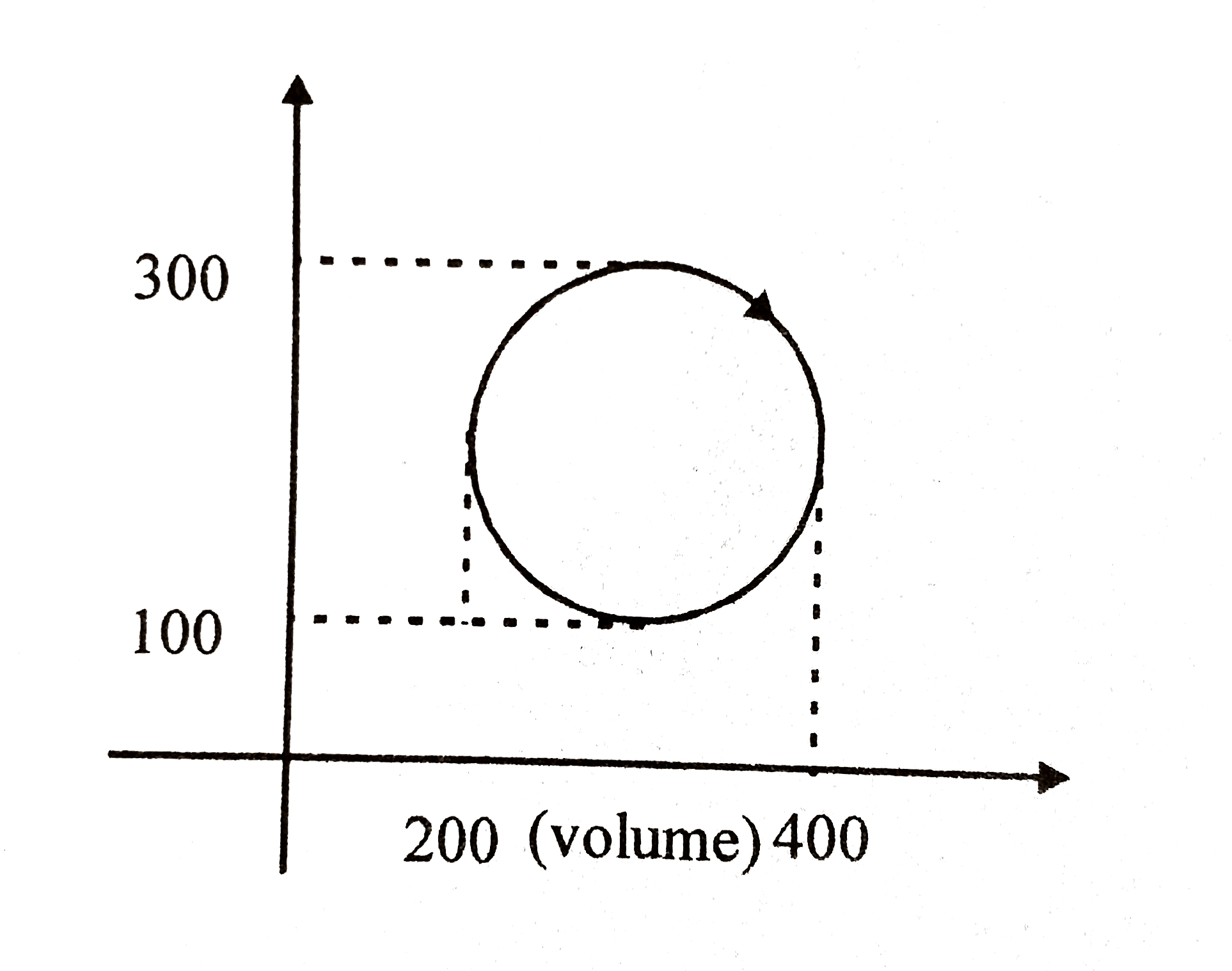
View SolutionA thermodynamic process is shown in this figure. The pressure and volumes corresponding to some points in the figure are
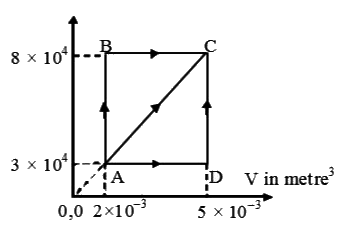
PA=3×104Pa VA=2×103m3
PB=8×104Pa, VD=5×10−3m3
In process AB, 600 J of heat is added to the system and in process BC 200 J of heat is added to the system. The change in internal energy of the system in process AC would be
View SolutionA thermodynamic process is shown in the following figure. In the process AB, 600 J of heat is added to the system and in BC, 200 J of heat is added to the system. The change in internal energy of the system in the process AC would be:
PA=3×104Pa,VA=2×10−3m3
PB=8×104Pa,VC=5×10−3m3
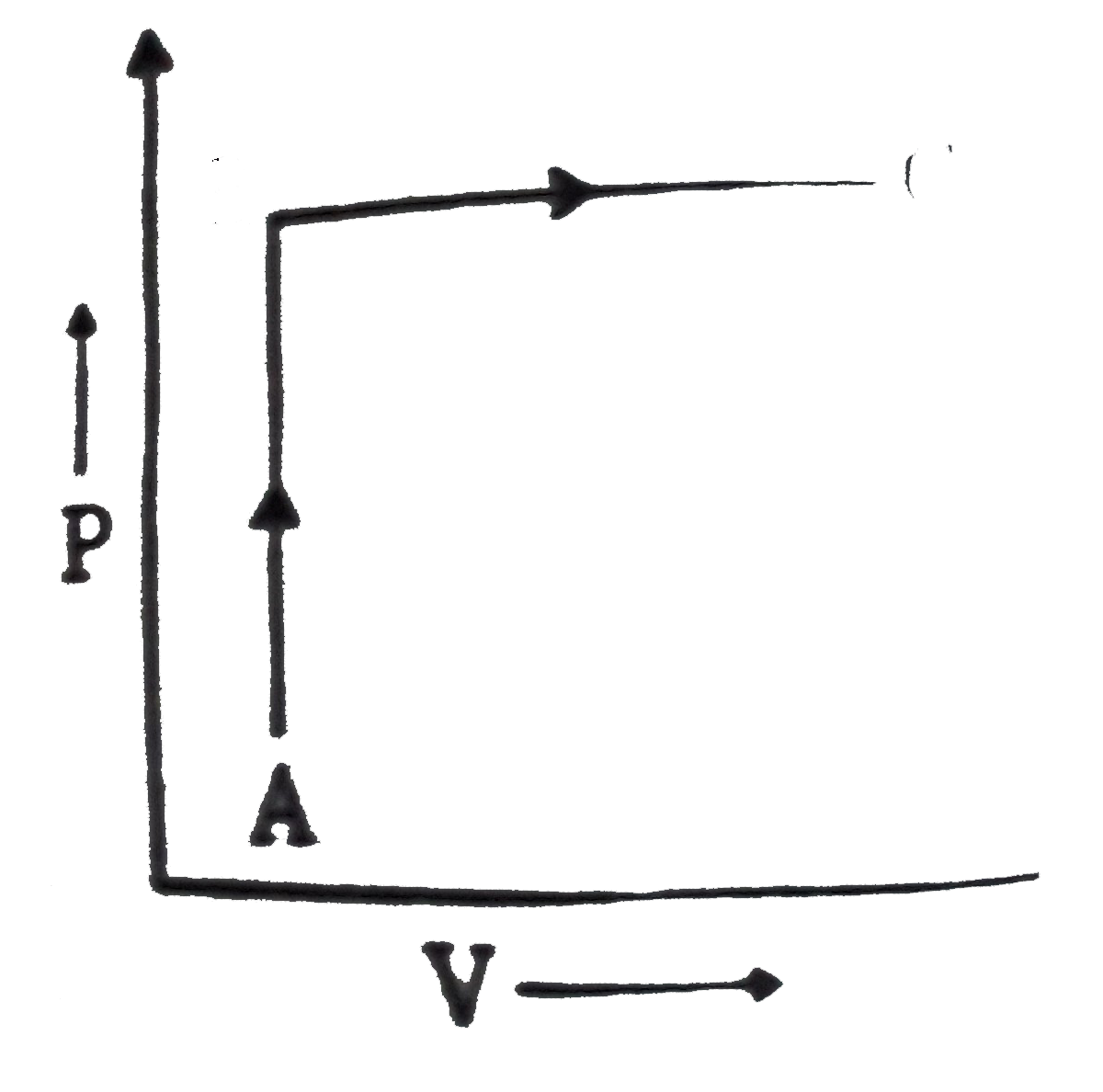
View SolutionA thermodynamic process is as shown in figure such that
PA=3×104Pa,
PB=8×104Pa,
VA=2×10−3m3,
VD=5×10−3m3
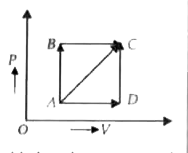
In procss AB, 600 J of heat is added to the system and in process BC, 200 J of heat is added to the system. The change in internal energy of the system in proess AC is
View SolutionA thermodynamic process is shown in figure. In process ab, 600 J of heat is added, and in process bd 200 J of heat is added. The total heat added in process acd is
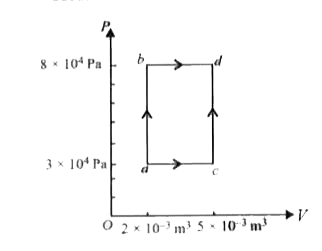
View Solution

